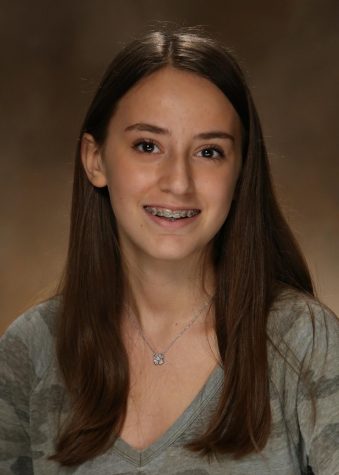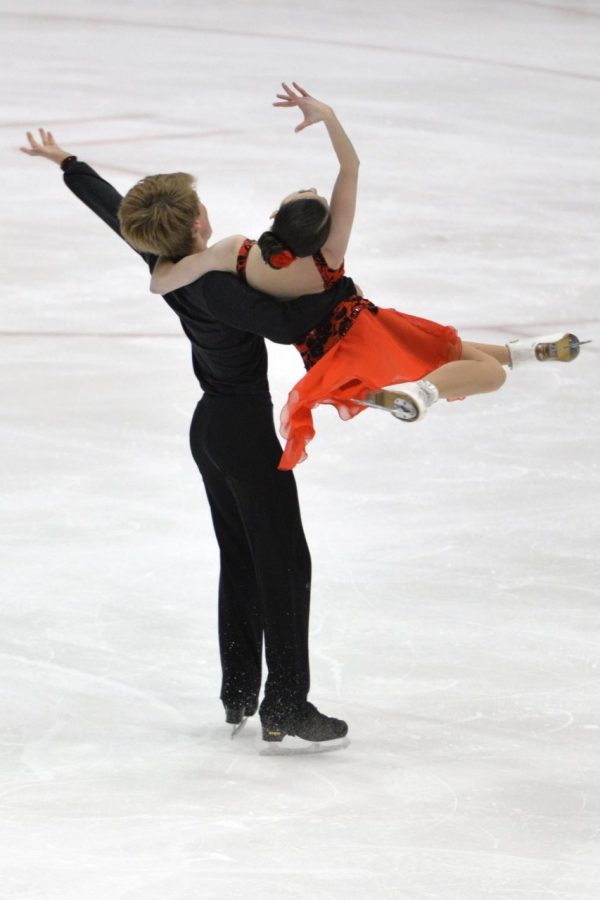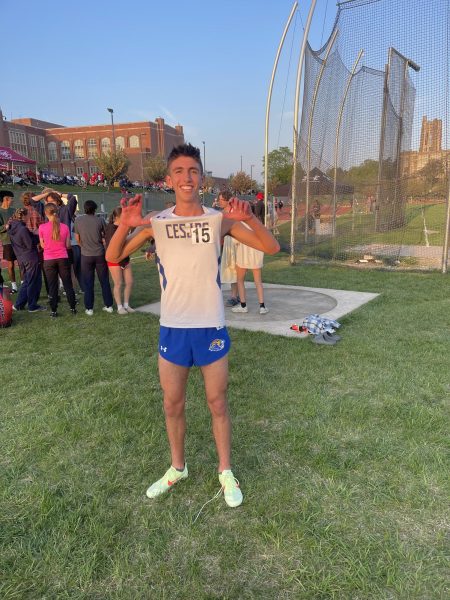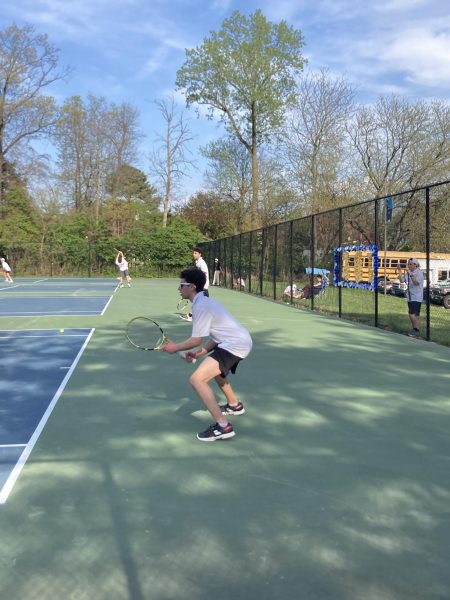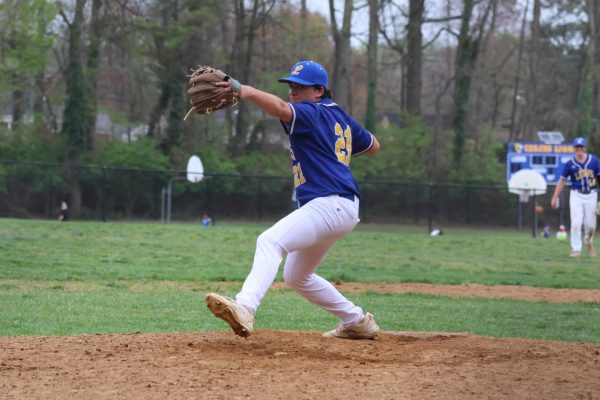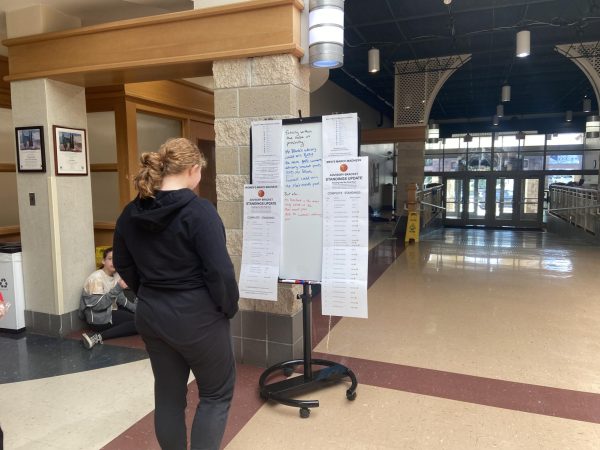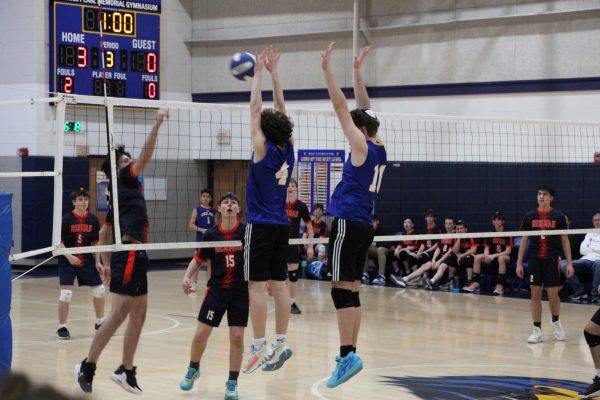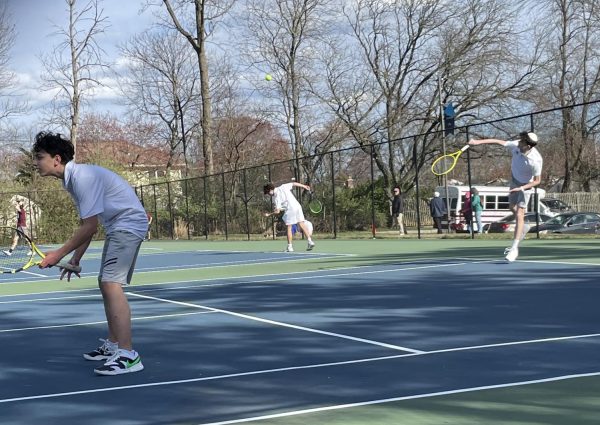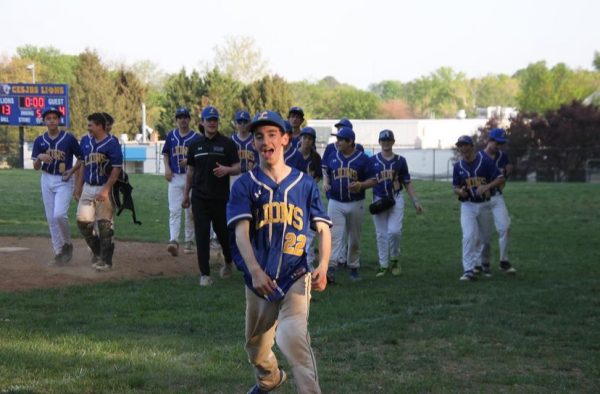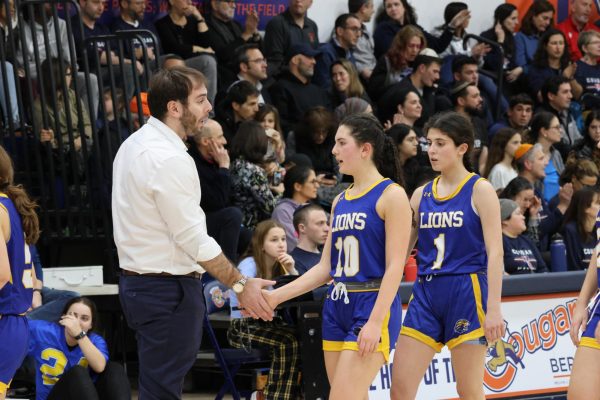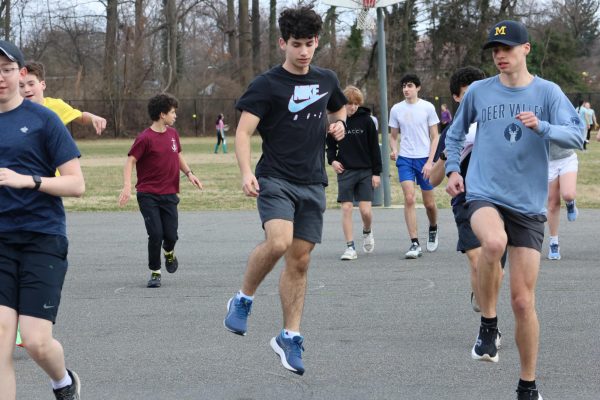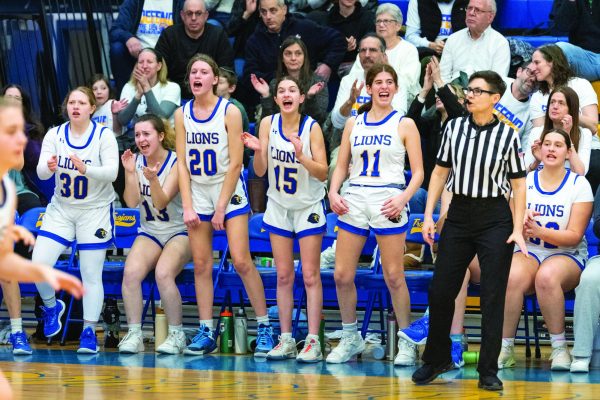Skate for gold: Ice dancers train
Moments before junior Allie Ravitz and her team step out of the locker room, the room is full of determination to skate the best that they can. As they stand on the ice, however, the nerves begin to kick in. They do their very short warm up and get into their starting position. When the music starts to play the team begins their performance, exactly as they practiced.
Ravitz, who has been synchronized skating for seven years, has competed at the national level multiple times, once in Rhode Island and once in Michigan. To get to Nationals, Ravitz and her team competed in the Cape Cod Classic, Eastern Sectionals and many other competitions.
While synchronized skating is not yet included in the Olympics, if it is included in the 2022 Winter Olympic Games, Ravitz said she would love to compete on the “biggest stage in the world.”
“It’s a really amazing sport and I really want to see it in the Olympics. It’s just as hard as any other team event, like synchronized swimming,” Ravitz said.
Currently, Ravitz’s team practices twice a week, but if they were training for the Olympics they would have more frequent and intense practices. According to Ravitz, her team would most likely increase their off-ice training, which includes conditioning, strength and cardio, but they would still spend the majority of their time on ice, training and rehearsing routines.
In addition to Ravitz, Junior Eliana Gropman has been ice dancing since the age of four and started competing around the age of 10. Gropman attends ice dancing practice every day before and after school as well as Saturdays, where she and her partner Whitman junior Ian Somerville practice their routines. Over the years, Gropman has won the U.S. Juvenile National Championships in Michigan, U.S. Intermediate National Championships in Nebraska and many more medals in ice dancing. She loves the rush she gets from competing and winning all of these medals.
“The feeling when I’m doing my program, it’s really in the moment and I’m kinda free,” Gropman said. “I’m not really thinking about anything I’m just focusing on the skating.”
Gropman has always dreamed of being a professional ice dancer and looks up to professional Olympic American ice dancers Charlie White and Meryl Davis. Gropman and Somerville met with White and Davis and skated with them when Gropman first began competing.
Davis and White did not coach Gropman and Somerville, but there was a program where they got to work with them.
“They’ve been skating together for so long, they’ve been doing it for so long and all of their hard work paid off,” Gropman said.
In addition to being inspired by Davis and White, Gropman has always been motivated by her coaches especially in hard times.
“They push me to do my best and they always believe in me,” Gropman said. “Even when I don’t, they always believe in me.”
Gropman is not specifically training for the Olympics, but one day wishes to do so. She currently competes in the advanced level, a level below the one in which athletes are eligible to be selected to compete in the Olympics, but she knows athletes who have gotten the opportunity to compete like her friend who has competed in the Ladies Discipline and the Americans in her own discipline.
Gropman does not know what the future will hold, but she plans to continue skating and eventually become a professional ice dancer.
“I just feel like generally you don’t really know what your future is, but I want to continue with this through college and do it professionally,” Gropman said.
Throughout his time at JDS, Athletic Director Mike Riley has seen many student-athletes succeed and go on to compete in college. Many years ago, he did see an athlete of his go on to compete in the Olympics for Jujitsu, a Japanese martial art form. Riley has not seen any JDS students compete in the Olympics, but feels that the school’s athletics program is very supportive of students with any athletic goals and dreams.
“I think by offering an athletic program for our students we are supporting athletes that have higher expectations, this is like a proving ground to see if you would be interested in doing something better,” Riley said. “Like an athlete we had last year, our basketball player Bryan Knapp. He wanted to go on and play Division 1 basketball and he played basketball here [JDS], had outside training, but this gave him a platform to show a unique set of skills, so he was able to do that through our athletic program.”
Riley recognizes it takes a lot of hard work to be a serious and competitive athlete, whether for Division 1 sports in college or for the Olympics.
“Any athlete that aspires to be a Division 1 athlete or any type of college athlete has to put in the work and it’s not always easy but if you’re going to play collegiately you’re going to have to be dedicated to your sport, you’re going to have to put in the work to get better at your sport,” Riley said.
This story was published in the Volume 35, Issue 5 print edition of The Lion’s Tale, published on March 22, 2018.
